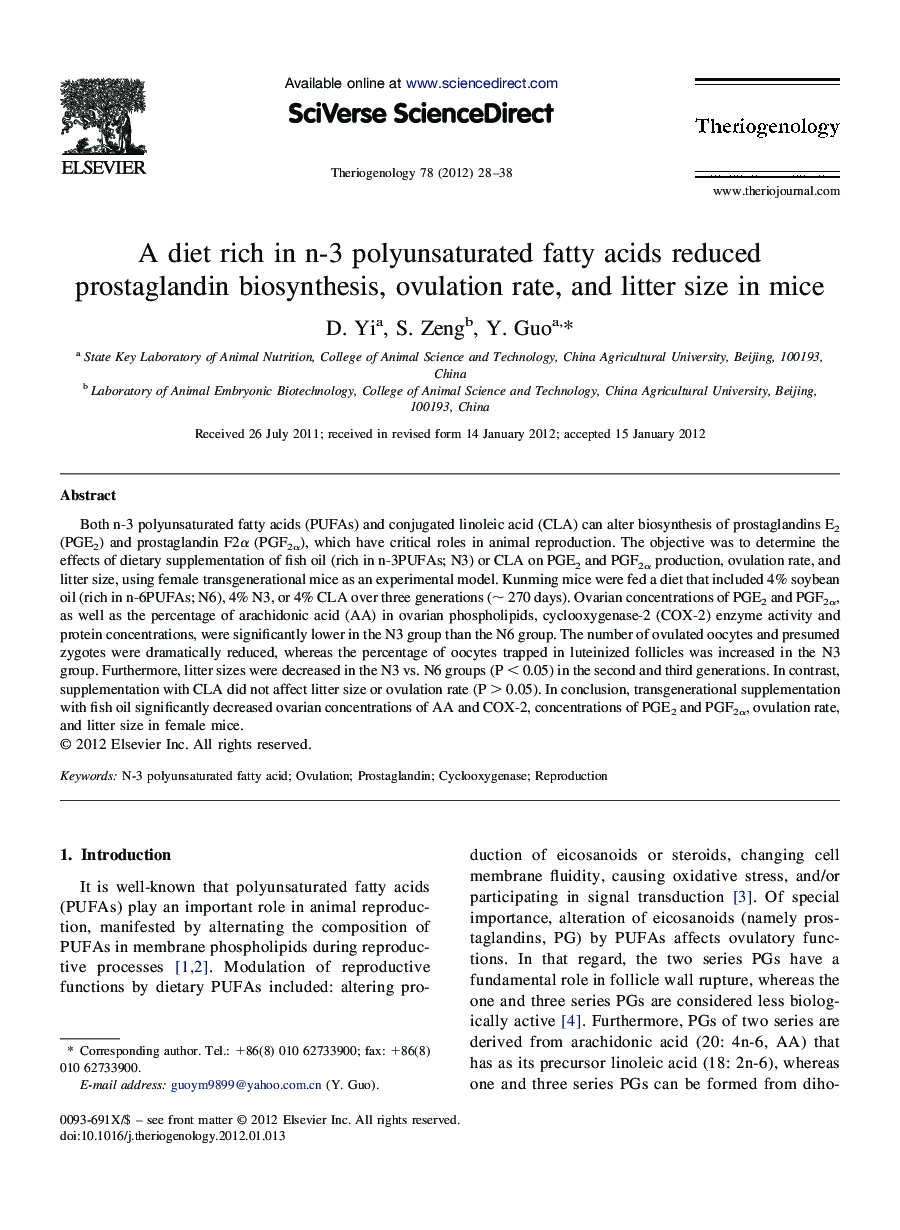| Article ID | Journal | Published Year | Pages | File Type |
|---|---|---|---|---|
| 2097686 | Theriogenology | 2012 | 11 Pages |
Both n-3 polyunsaturated fatty acids (PUFAs) and conjugated linoleic acid (CLA) can alter biosynthesis of prostaglandins E2 (PGE2) and prostaglandin F2α (PGF2α), which have critical roles in animal reproduction. The objective was to determine the effects of dietary supplementation of fish oil (rich in n-3PUFAs; N3) or CLA on PGE2 and PGF2α production, ovulation rate, and litter size, using female transgenerational mice as an experimental model. Kunming mice were fed a diet that included 4% soybean oil (rich in n-6PUFAs; N6), 4% N3, or 4% CLA over three generations (∼ 270 days). Ovarian concentrations of PGE2 and PGF2α, as well as the percentage of arachidonic acid (AA) in ovarian phospholipids, cyclooxygenase-2 (COX-2) enzyme activity and protein concentrations, were significantly lower in the N3 group than the N6 group. The number of ovulated oocytes and presumed zygotes were dramatically reduced, whereas the percentage of oocytes trapped in luteinized follicles was increased in the N3 group. Furthermore, litter sizes were decreased in the N3 vs. N6 groups (P < 0.05) in the second and third generations. In contrast, supplementation with CLA did not affect litter size or ovulation rate (P > 0.05). In conclusion, transgenerational supplementation with fish oil significantly decreased ovarian concentrations of AA and COX-2, concentrations of PGE2 and PGF2α, ovulation rate, and litter size in female mice.
